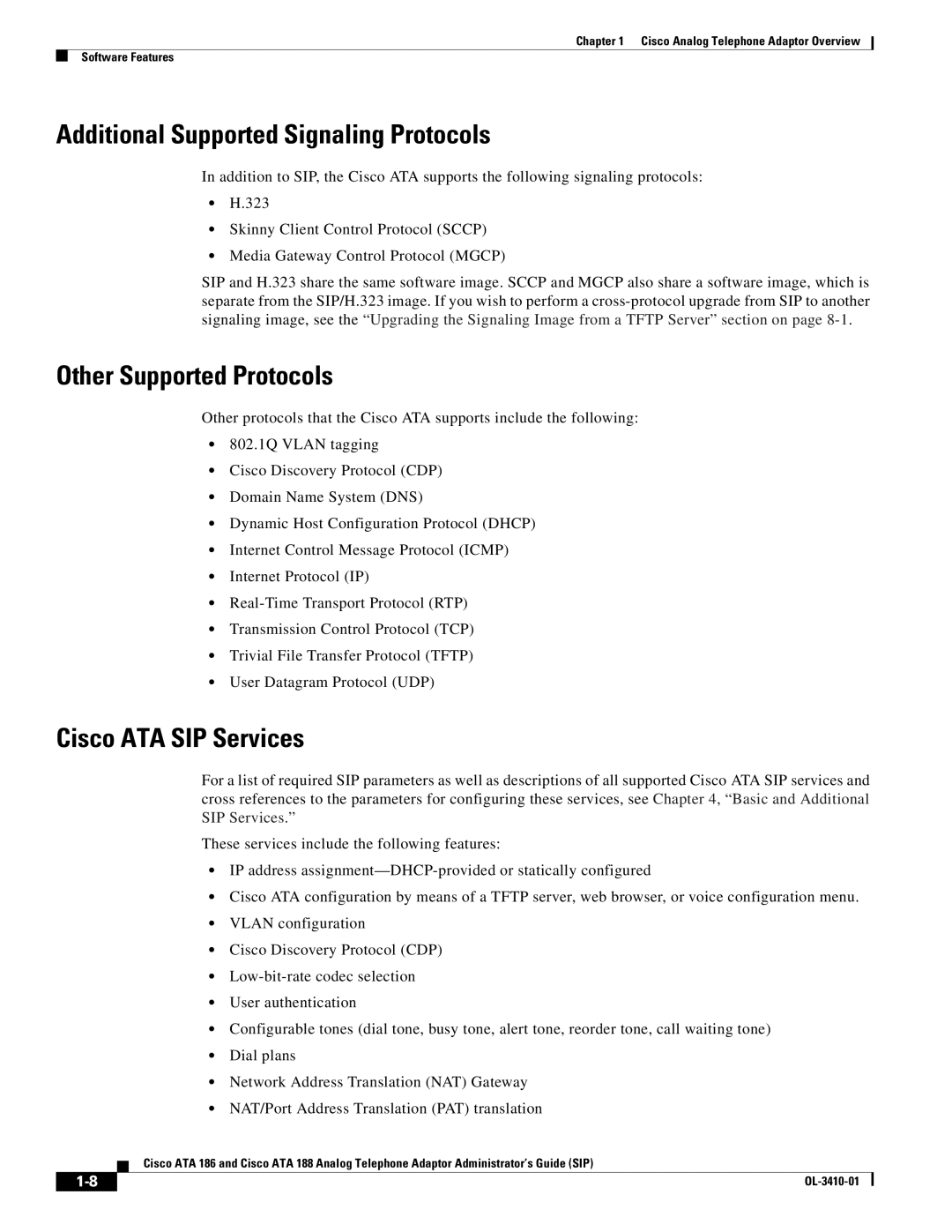
Chapter 1 Cisco Analog Telephone Adaptor Overview
Software Features
Additional Supported Signaling Protocols
In addition to SIP, the Cisco ATA supports the following signaling protocols:
•H.323
•Skinny Client Control Protocol (SCCP)
•Media Gateway Control Protocol (MGCP)
SIP and H.323 share the same software image. SCCP and MGCP also share a software image, which is separate from the SIP/H.323 image. If you wish to perform a
Other Supported Protocols
Other protocols that the Cisco ATA supports include the following:
•802.1Q VLAN tagging
•Cisco Discovery Protocol (CDP)
•Domain Name System (DNS)
•Dynamic Host Configuration Protocol (DHCP)
•Internet Control Message Protocol (ICMP)
•Internet Protocol (IP)
•
•Transmission Control Protocol (TCP)
•Trivial File Transfer Protocol (TFTP)
•User Datagram Protocol (UDP)
Cisco ATA SIP Services
For a list of required SIP parameters as well as descriptions of all supported Cisco ATA SIP services and cross references to the parameters for configuring these services, see Chapter 4, “Basic and Additional SIP Services.”
These services include the following features:
•IP address
•Cisco ATA configuration by means of a TFTP server, web browser, or voice configuration menu.
•VLAN configuration
•Cisco Discovery Protocol (CDP)
•
•User authentication
•Configurable tones (dial tone, busy tone, alert tone, reorder tone, call waiting tone)
•Dial plans
•Network Address Translation (NAT) Gateway
•NAT/Port Address Translation (PAT) translation
Cisco ATA 186 and Cisco ATA 188 Analog Telephone Adaptor Administrator’s Guide (SIP)
| ||
|
